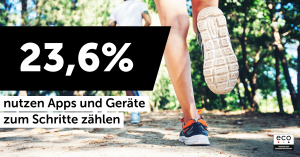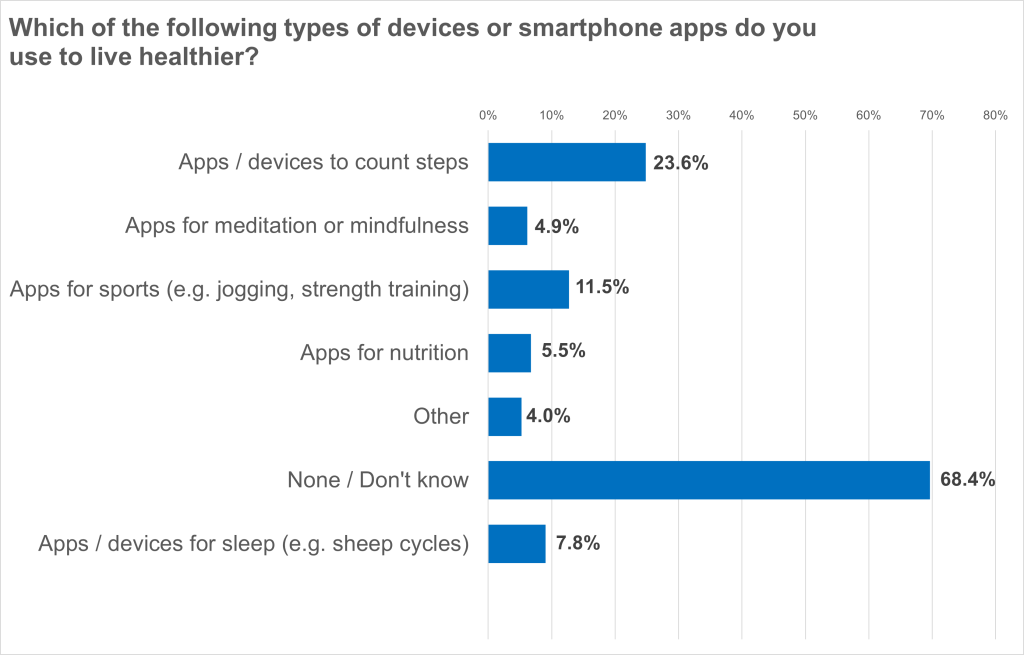- Pedometers are particularly popular (23.6 per cent)
- eco Association gives tips on how to protect personal data in health apps
Fit and healthy into old age: Health apps are helping an increasing number of people to achieve this goal – through more exercise, improved nutrition, better sleep and more self-care. Almost every third person (31.6 per cent) uses health apps, according to a representative survey of 2,500 Germans conducted by the market and opinion research institute Civey on behalf of eco – Association of the Internet Industry. Approximately one in four (23.6 per cent) use apps and devices that count steps every day. Sports apps designed for jogging or strength training workouts, for example, are also popular (11.5 per cent). 7.8 per cent of users monitor their sleep with digital applications.
“The smartphone has become a daily fitness coach for many people. We can use it to track whether we are exercising enough, eating healthy or sleeping well at any time on demand. The respective apps motivate us and help us to do something for our own health,” says eco’s Managing Director Alexander Rabe. Doctors are therefore recommending digital health applications (DiGA) to many patients – some of which are already being prescribed and covered by health insurance.
Data protection with health apps: this is how it works
“When choosing health apps, individuals should always pay attention to the privacy concerns that are relevant to them,” adds Rabe. The German Federal Office for Information Security (BSI) has identified numerous vulnerabilities in an investigation of health apps. Data relating to a person’s health is particularly sensitive an,d therefore, needs special protection.
DiGAs prescribed by doctors offer a certain level of security. This is because these applications have to pass an examination for safety, functional suitability, data protection and data security requirements at the German Federal Institute for Drugs and Medical Devices (BfArM) before they can be prescribed.
Restrict app permissions
For all other apps, users should protect their personal vital and health data as best they can. They ask for date of birth, gender, height and weight and transmit pulse, blood pressure, sleep quality and other data to the providers. “Read the privacy and terms of use of the apps or devices carefully before accepting them. Pay attention to what data is collected, how it is processed, whether it is shared with third parties and what rights to information you have as a user,” Rabe comments. If apps intend to pass on this data to third parties, for example to social networks, health portals or research institutions, users should check this and object if necessary.
The app permissions also show what other data the app wants to use and transfer. “It is advisable to only allow apps to access data that they really need in order to function correctly,” says Rabe. “I generally recommend that the transfer of background data be checked and restricted if necessary.”
Download graphic
Download Beitragsbild
The eco initiative #Join the Solution shows how digitalisation can support healthcare.





